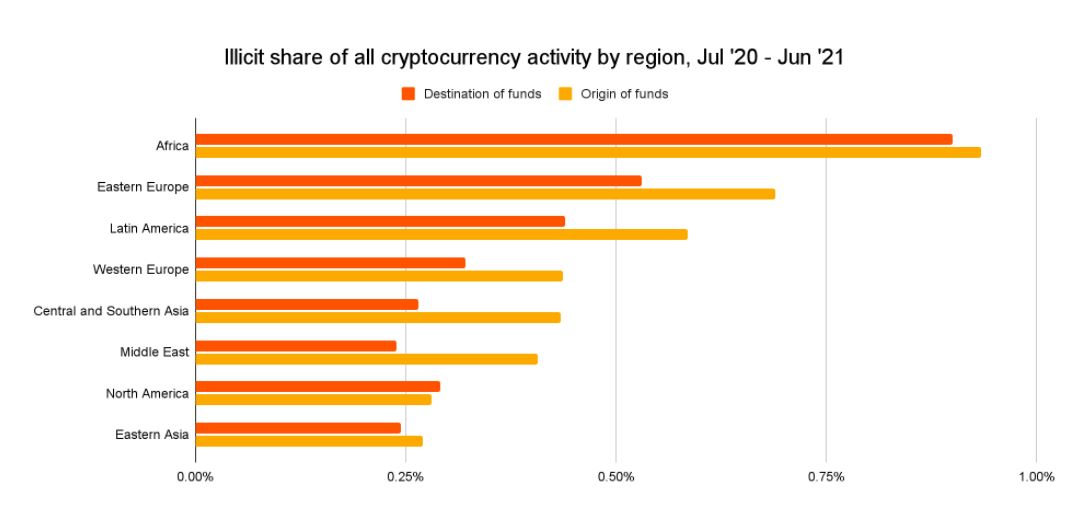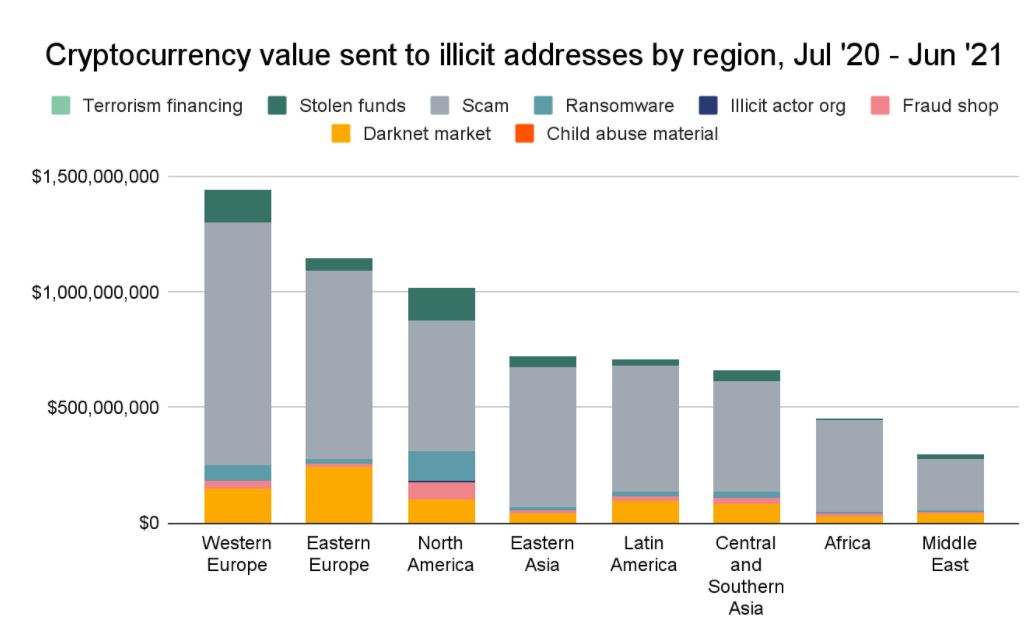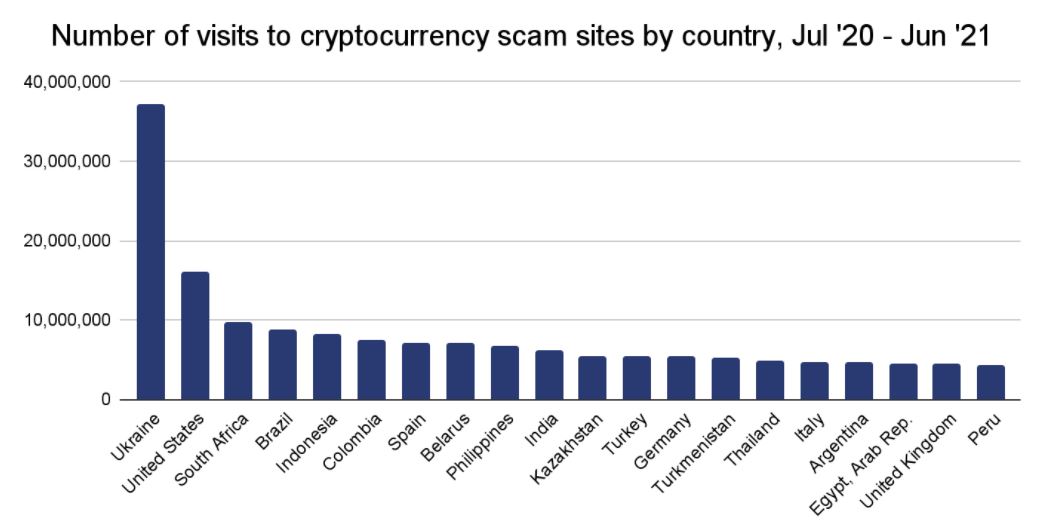Crypto is popular in Eastern Europe, but it really has a Hydra problem

The rise of cryptocurrencies has also birthed a gateway to several Ponzi schemes and scams. In fact, in the last year alone, the latter have led to Eastern Europeans losing nearly $815 million.
According to blockchain research firm Chainalysis who tracked the illicit share of crypto-activity by region between June 2020 and July 2021, addresses located in Eastern Europe were alone responsible for sending the aforementioned sum to various scams and Ponzi schemes. The report noted,
“As is the case with all regions, scams make up the biggest share of funds sent from Eastern Europe to illicit addresses — we can assume that most of this activity represents victims sending money to scammers.”
Right now, Eastern Europe trails just Africa as a hub of illicit activities involving crypto, with the huge gap in crypto-education playing a significant role here.

Source: Chainalysis
This is an alarming find, especially since Eastern Europe’s crypto-economy well overshadows the likes of Africa and Latin America.
The report went on to add,
“In fact, Eastern Europe is the only region with a total transaction volume of $400 million or more for which illicit activity makes up more than 0.5% of total cryptocurrency value sent and received.”
Meanwhile, in terms of raw value, Eastern Europe sent the second-most cryptocurrency of any region to illicit addresses, behind only Western Europe, as is visible from the chart below.

Source: Chainalysis
So, where are the scammers collecting this huge sum?
You guessed it – The darknet market.
And, not just any darknet market, but Hydra market. It is regarded as the world’s biggest darknet market and caters only to users in Russian-speaking countries throughout Eastern Europe, according to researchers.
What’s more, a country-wise breakdown suggested that Ukraine accounted for most of this activity. The research also found that the country sent more web traffic to scam websites than any other.

Source: Chainalysis
Nevertheless, more than half of the value sent to scam addresses went to Finiko, a Russia-based Ponzi scheme that collapsed in July 2021. While Europe has been a keen observer of the crypto-world and has also been making an effort to understand and incorporate a CBDC, it may want to work on crypto-education too to control the continent’s exposure to increasing scams.






